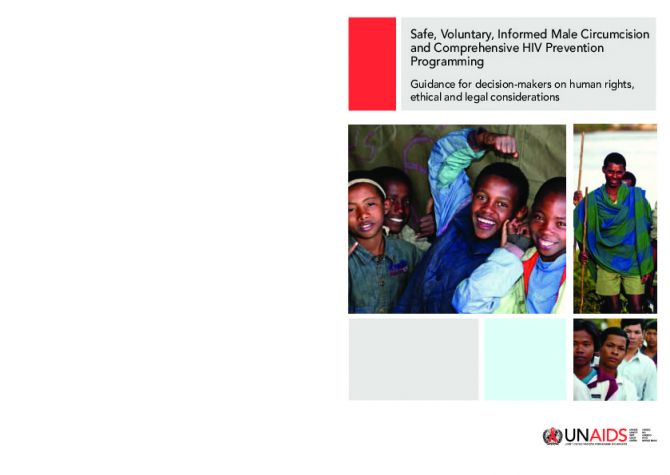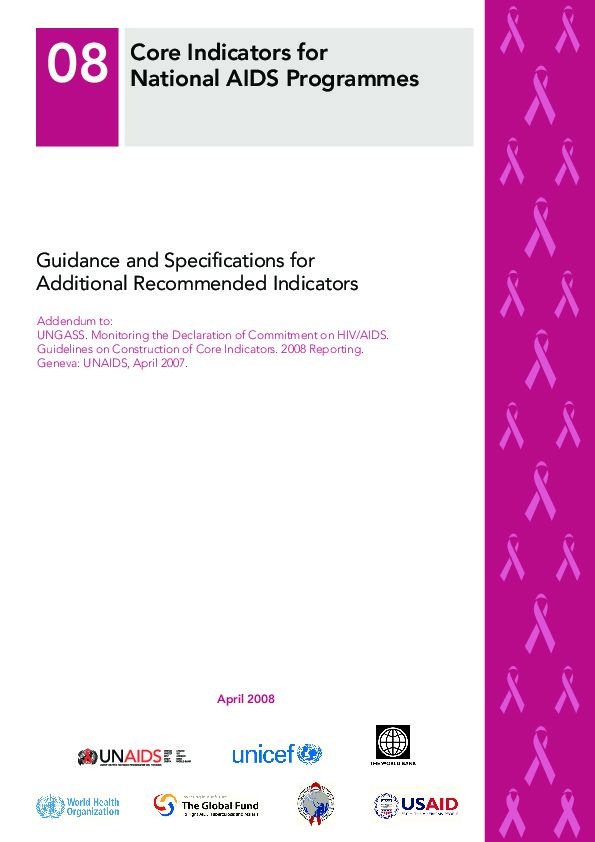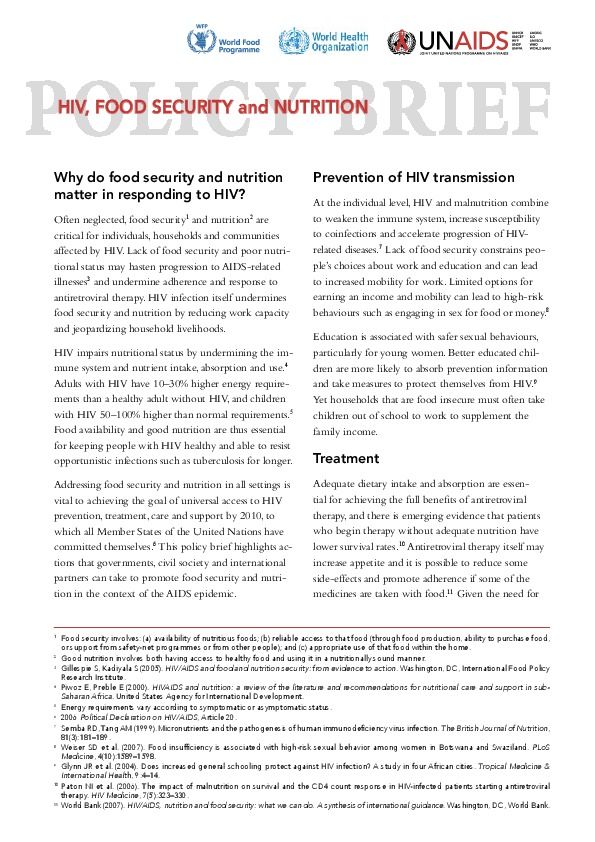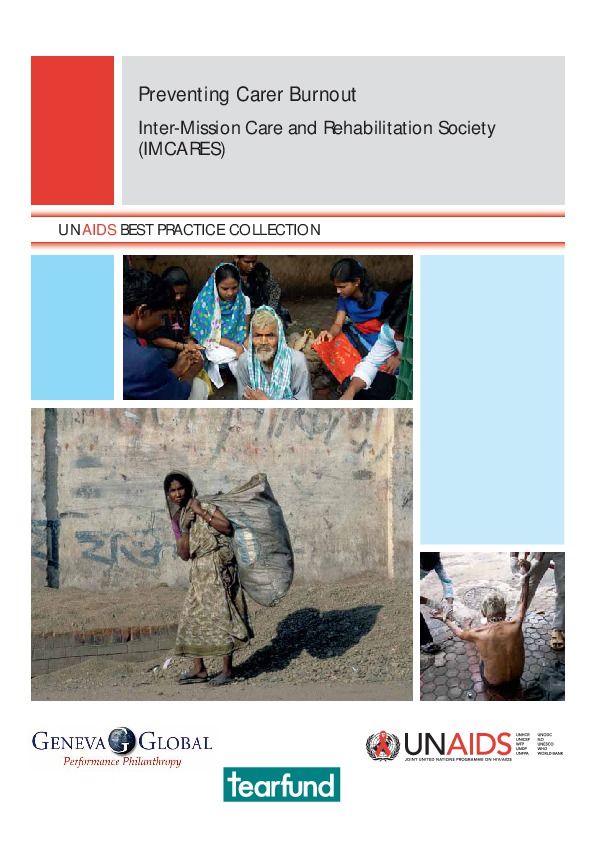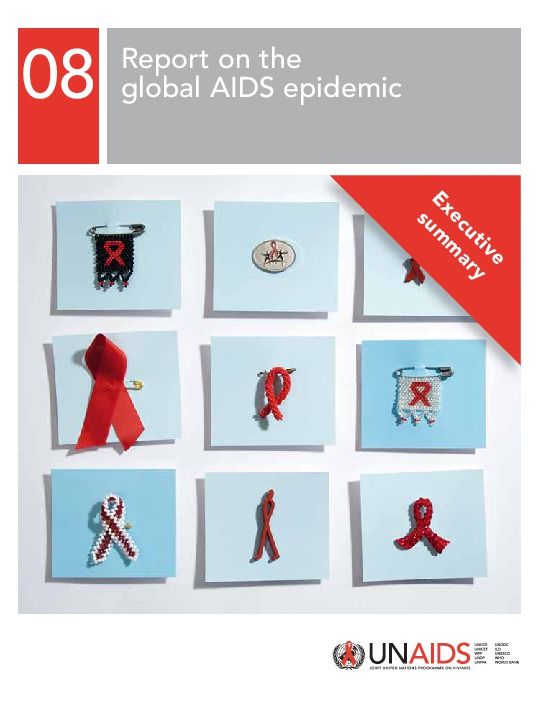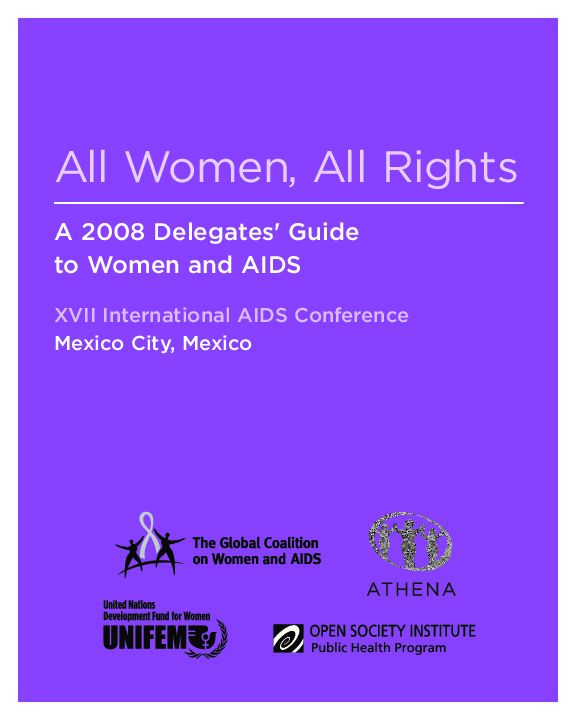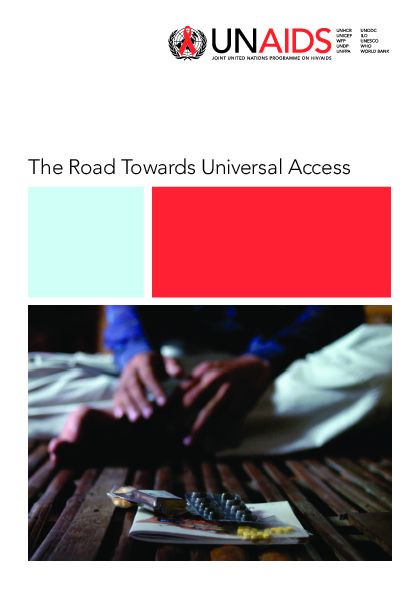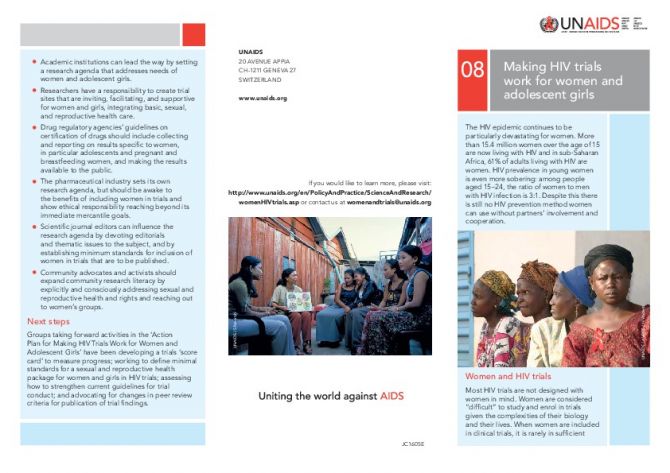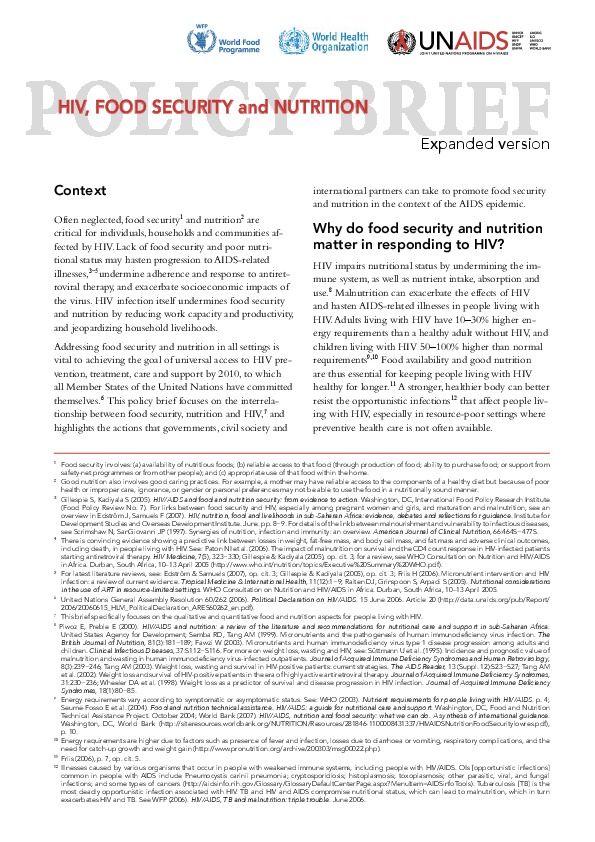Documents
Global Tuberculosis Control 2008
17 March 2008
Annual report published by the World Health Organization (WHO) Global Tuberculosis Control 2008. This year's report shows that nearly 3/4 million people living with HIV fell ill with TB disease in 2006, confirming that TB is a major cause of illness and death in people living with HIV despite being mostly preventable and curable. Africa is yet again the most heavily affected continent, with 85% of the global burden of HIV-related TB.
Documents
Safe, Voluntary, Informed Male Circumcision and Comprehensive HIV Prevention Programming Guidance for decision-makers on human rights, ethical and legal consideration
27 March 2008
Given that it reduces a man's risk of acquisition of HIV through penile-vaginal intercourse, male circumcision provides an opportunity to reinforce HIV prevention efforts and thereby promote human rights. A human rights-based approach to introducing or expanding male circumcision services requires measures to ensure that the procedure can be carried out safely, under conditions of informed consent, and without discrimination.
Documents
Core Indicators for National AIDS Programmes - Guidance and Specifications for Additional Recommended Indicators
01 April 2008
The purpose of this document is to present the 40 core national indicators that provide minimum necessary information for national-level monitoring of the HIV epidemic and response, and to provide detailed specifications and guidance on the 15 indicators recommended in addition to the 25 UNGASS indicators.
Documents
Preventing carer burnout: Inter-Mission Care and Rehabilitation Society (IMCARES)
23 May 2008
Burnout is not a single event but a process in which everyday stresses and anxieties that are not addressed gradually undermine carers mental and physical health, so that eventually caregiving and personal relationships suffer. Burnout is the fi nal stage in the stress process when everything falls apart. As a medical condition, burnout has no clear defi nition, but as a psychological condition it has been well defi ned and is increasingly recognized by people in the caring professions. Burnout has long been identifi ed as a crucial issue in HIV care and support; yet there is relatively little known about what measures can be taken to prevent or mitigate it.This document looks at how carer burnout can be avoided. It focuses on the approach used by a faith-based organization, IMCARES, Mumbai, India, to care for their staff and volunteers employed in their programmes and as carers in the community. Their strategy and practice may provide useful lessons in caring for carers for both secular and faith-based organizations working with people living with and affected by HIV.
Documents
Executive summary of 2008 Report on the global AIDS epidemic
17 July 2008
The report documents considerable progress in many countries in addressing their national epidemics. A six fold increase in financing for HIV programmes in low- and middle-income countries 2001–2007 is beginning to bear fruit, as gains in lowering the number of AIDS deaths and preventing new infections are apparent in many countries. Progress remainsuneven, however, and the epidemic’s future is still uncertain, underscoring the need for intensified action to move towards universal access to HIV prevention, treatment, care and support.
Documents
2008 Delegates Guide to Women and AIDS: All Women, All Rights
24 July 2008
The guide to the women’s events and sessions in the Mexico Conference includes all sessions that address women’s issues directly or are organized by organizations serving women’s interests. These sessions will draw together lessons and conclusions from diverse expereinces across the globe. They will shed new knowledge and solidify what we already know – women must be front and center in the AIDS response.
Documents
The road towards universal access
01 August 2008
Universal access is the global commitment to provide HIV prevention, treatment, care and support services to all those in need, based on national targets set by countries. The targets were developed through country consultations with civil society, people living with HIV and other national partners to assess their epidemics and obstacles to accessing HIV prevention, treatment and care services.
Documents
Making HIV trials work for women and adolescent girls
28 August 2008
UNAIDS and other partners, including the Global Coalition on Women and AIDS, the International Center for Research on Women and Tibotec Inc., have come together to create a movement to ‘Make HIV Trials Work for Women and Adolescent Girls’. The movement has been established to review past participation of women and adolescent girls in clinical trials; to assess how well HIV trials are collecting, measuring, analysing and presenting data related to health determinants and health outcomes in women or adolescent girls; and to identify barriers to including women and adolescents in trials. An action plan, developed to address these concerns, is being implemented.
Documents
Policy Brief - HIV, food security and nutrition (expanded version)
10 November 2008
Often neglected, food security and nutrition are critical for individuals, households and communities affected by HIV. Lack of food security and poor nutritional status may hasten progression to AIDS-related illnesses and undermine adherence and response to antiretroviral therapy. HIV infection itself undermines food security and nutrition by reducing work capacity and jeopardizing household livelihoods.


